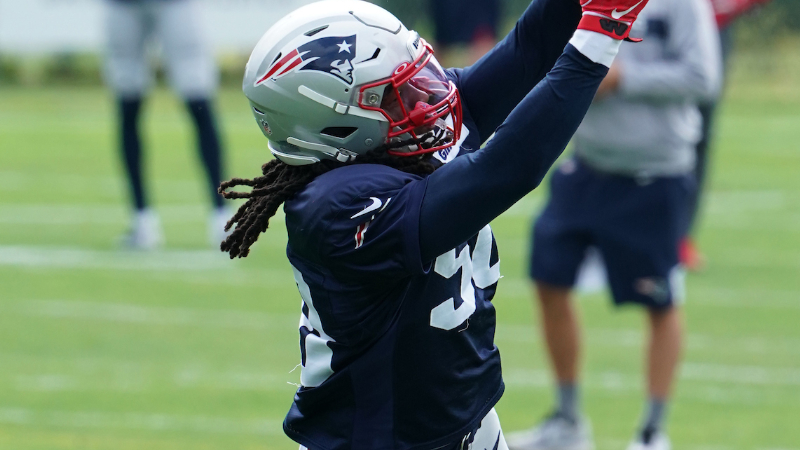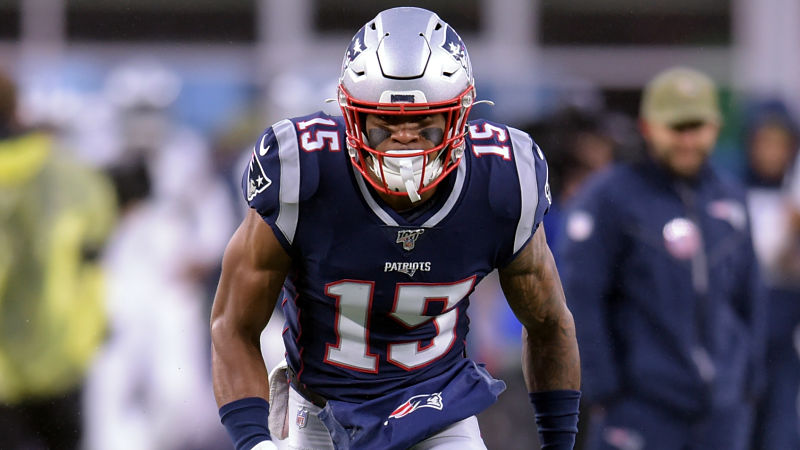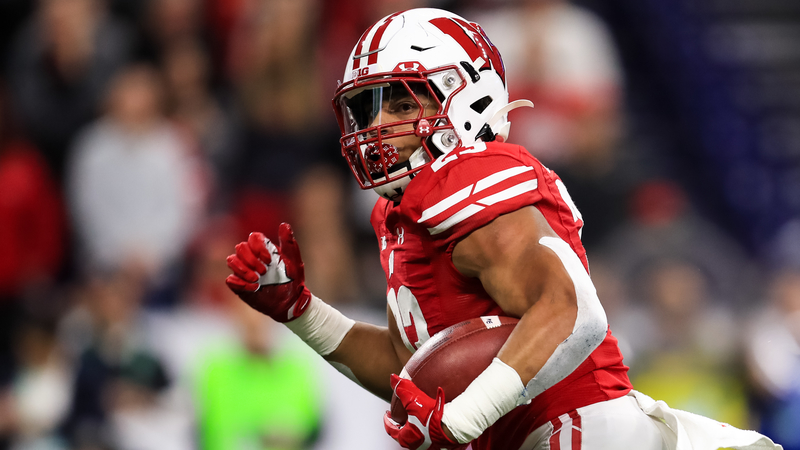Prior to Thursday night, the New England Patriots had a specific type when it came to drafting a wide receiver.
That player was typically undersized, ran a 4.4-second or faster 40-yard dash, a 6.9 or quicker three-cone drill and didn’t put up gaudy stats in college. The system ultimately failed to produce desired results.
N’Keal Harry, the Patriots’ pick at No. 32 overall in the 2019 NFL Draft, checks none of those boxes. He’s big — 6-foot-3, 225 pounds — and failed to reach those preferred metrics, running a 4.53-second 40 and finishing the three-cone in 7.05 seconds. And he produced in a big way at Arizona State, catching 213 passes for 2,889 yards with 22 touchdowns in three college seasons. He had two 1,000-yard seasons and averaged 71 catches, 963 yards and 7.3 touchdowns per year.
Check out the college production of every other receiver drafted by the Patriots:
David Givens: 72 catches, 814 yards, three touchdowns (four seasons)
Deion Branch: 143 catches, 2,204 yards, 18 touchdowns (two seasons)
Bethel Johnson: 117 catches, 1,740 yards, 11 touchdowns (four seasons)
P.K. Sam: 76 catches, 1,066 yards, seven touchdowns (three seasons)
Chad Jackson: 120 catches, 1,586 yards, 16 touchdowns (three seasons)
Matt Slater: no catches, 0 yards (four seasons)
Julian Edelman: one catch, 11 yards (three seasons)
Brandon Tate: 46 catches, 927 yards, eight touchdowns (four seasons)
Taylor Price: 149 yards, 2,019 yards, 14 touchdowns (four seasons)
Jeremy Ebert: 173 catches, 2,400 yards, 21 touchdowns (four seasons)
Josh Boyce: 161 catches, 2,535 yards, 22 touchdowns (three seasons)
Aaron Dobson: 165 catches, 2,398 yards, 24 touchdowns (four seasons)
Jeremy Gallon: 173 catches, 2,704 yards, 17 touchdowns (four seasons)
Malcolm Mitchell: 174 catches, 2,350 yards, 16 touchdowns
Devin Lucien: 124 catches, 1,826 yards, 12 touchdowns (four seasons)
Braxton Berrios: 100 catches, 1,175 yards, 14 touchdowns (four seasons)
Those receivers, collectively, averaged 30.9 catches, 444.1 yards and 3.5 touchdowns per season. Take out Slater and Edelman, and those wideouts still only were averaging 35.2 catches, 504.8 yards and four touchdowns per season.
Branch and Edelman were the Patriots’ best hits among drafted receivers. Branch averaged 71.5 catches, 1,102 yards and nine touchdowns per season at Louisville (he also spent two years at a junior college). Harry averaged 77.5 catches, 1,115 yards and 8.5 touchdowns over his last two seasons.
College production is not meaningless.
The Patriots really strayed from the norm by taking Edelman. Did you know he played quarterback in college?
Harry still needs some seasoning at the pro level, but there’s less projection needed in assessing how his game will translate to the NFL. He excels on contested catches, hauling in back-shoulder throws and in picking up yards after the catch. It obviously will be more difficult for him to do exhibit those skills against NFL players, but he should still be able to use his size, strength and leaping ability to his advantage.
With past draft picks, like Johnson, Jackson, Tate, Price and Dobson, the Patriots hoped they could take a raw, athletic receiver in the second or third round and mold him into a productive player. It ultimately didn’t work.
Harry needs less molding, even if he lacks elite athleticism. Not only is Harry the first receiver Belichick has taken in the first round with the Patriots, but he’s also a departure from their typical trends. Who says you can’t teach old dogs new tricks?




